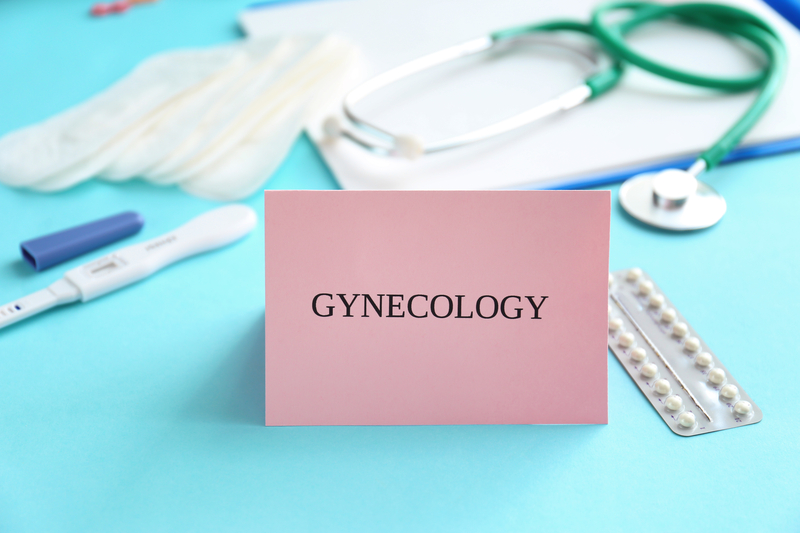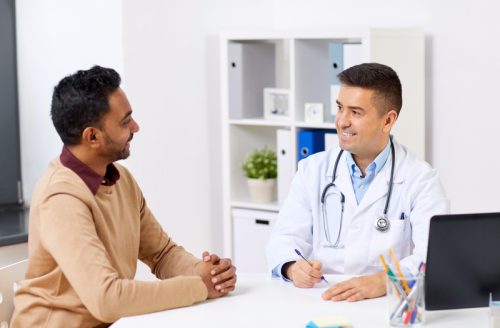Here at Great City Medical, we specialize in women’s health and reproductive health care. Our Dr. Yelena Tsyba is board-certified by the American College of Obstetricians and Gynecologists as a top obstetrics-gynecologist (ob/GYN). She is happy to help with all of your women’s health needs.
Whether you’re looking for a standard annual gynecology exam and pap smear, a family planning visit, or a surgical procedure, we can perform all of our ob/GYN services on-site in our New York City offices. We provide ob/GYN health care services to women of all ages. If you are looking for the best on/GYN near me in the NYC area, you’ve come to the right place!
Do I Need to Go to the Gynecologist Every Year?
Gynecology is an important part of women’s health care for all women. Women between the ages of 21 and 29 should receive a gynecological exam every year, and may wish to begin seeing a gynecologist as soon as the age of 16 if they become sexually active sooner. Women in this age range have an increased risk of contracting sexually transmitted diseases (STD) or sexually transmitted infections (STI) and of becoming pregnant, so it is important to see a women’s health doctor.
If they are in good health, not pregnant, and not being treated for a disease, women may begin seeing their gynecologist every other year after age 30. However, many women in this age range often do become pregnant and may need to visit their gynecologist more frequently for family planning visits.
Women of any age who experience any negative symptoms, changes to their menstrual cycles, unusual discharge or odors, or severe pelvic pain should arrange to see a gynecologist right away, as those may be signs of something more serious.
At What Age Can a Woman Stop Seeing a Gynecologist?
The age that one can stop regularly seeing a gynecologist varies from woman to woman, but generally healthy women over the age of 66 do not need to visit a gynecologist every year or every other year. If a woman near the age of 66 receives three clear pap smears in a row, they may stop receiving their annual pap smear and regular pelvic exams if they wish.
However, women in menopause or post-menopause may wish to continue seeing their gynecologist for treatment for other women’s health issues such as vaginal dryness, unusual discharge or odors, painful intercourse, or urinary incontinence. Gynecology includes many more women’s health services than just pap smears! We are proud to provide quality women’s health care services to women in all stages of life.
It is best to discuss your individual health situation with your gynecologist or primary care doctor before deciding if it is right for you to stop seeing a gynecologist regularly.
What Does a Gynecological Exam Include?
An annual gynecological exam, also known as a well-woman visit or gyn exam, can be as quick as just 10 minutes to complete.
This exam typically includes a pelvic exam, a pap smear, a blood pressure check, a breast exam, and tests for STDs or STIs, such as chlamydia and gonorrhea. It may sometimes include a urine test. You can also receive a birth control prescription, such as the daily pill or an IUD, during your checkup.
During the routine pelvic exam, the doctor will situate you comfortably within the stirrups and upon consent, they will examine the vulva and the labia first to see if there are any signs of abnormalities. Abnormalities can include various signs of irritation, swelling, redness, and STDs or STIs. Once the external examination is finished, the doctor will examine the interior of the vagina using a medical instrument called a speculum.
During the interior exam, the doctor will examine the cervix and perform pap smear, also called a pap test. The pap test takes a small sample of your cervical cells, which get sent off to a medical lab to check the cells for cervical cancer (cancer of the cervix). The importance of pap smears for women cannot be understated. Pap smears are important to catch any abnormalities early to prevent any major problems in the future. Cervical cancer is one of the most common forms of cancer in the United States. Cervical cancer is a serious medical condition, but an annual exam can be a life-saving procedure as it can help detect signs of cancer early and make it easier to treat. Results from a pap smear should be available within two weeks of your exam.
Using a gloved finger in your vagina and some applied pressure to the abdomen, the doctor will also examine the health of your uterus and ovaries.
The breast exam is part of your primary care and checks for any abnormalities or signs of breast cancer, another common form of cancer in the U.S. Again, this can be a life-saving procedure as it can help detect signs of cancer early and make it easier to treat.
A gynecological exam is an understandably uncomfortable procedure, especially if it is your first time visiting an ob/GYN. But don’t worry—your doctor can help ease your nerves and explain the process if it’s your first time. It is important to relax to help the exam go smoothly and painlessly. Additionally, you may bring a female family member, friend, or nurse chaperone to be in the exam room with you as well, so you never have to be alone with the doctor if that makes you feel uncomfortable.
What Women’s Health Care Services Do We Provide?
At Great City Medical in New York City, we provide many women’s health services to women of all ages, in addition to annual wellness exams. We also provide services for the following ob/GYN and ob-GYN-related surgical needs:
- Family Planning and Birth Control
- IUD Insertion and Removal
- Menstruation Care
- Menopause Management
- Gynecological Surgeries
- Pap Smear and Pelvic Exam
- Urinary Incontinence
- Endometriosis
- Fibroids
- Pelvic Pain
- Cancer Screenings
- Breast Exams
- Leep
- Dilation and Curettage (D&C)
- Any other health issues
- Reconstructive surgery



